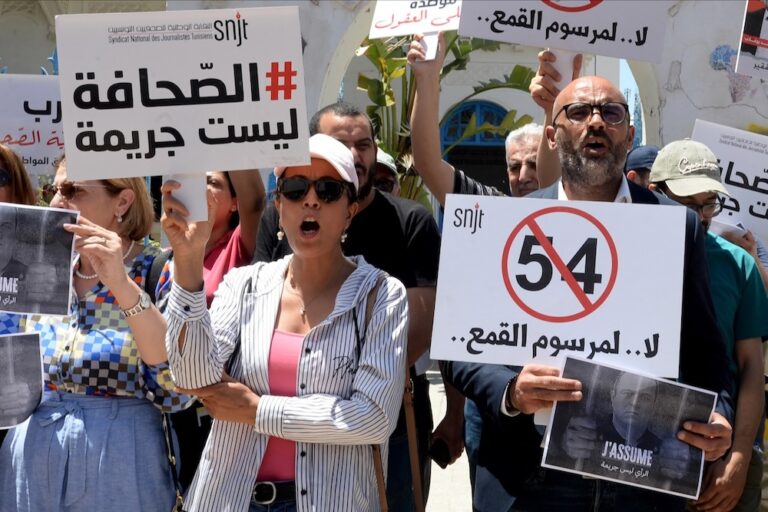Most of the parties feel that the new Constitution should protect freedom of expression and of the press, but they disagree on limits to free expression when it concerns the right to privacy, the protection of minorities against hate speech, and the "defamation of religions."
(Human Rights Watch/IFEX) – Tunis, October 20, 2011 – Many parties competing in Tunisia’s election for a constituent assembly on October 23, 2011, believe that basic freedoms should be protected, but they disagree about circumstances under which freedoms could be limited, Human Rights Watch said in a briefing paper issued today. The paper was prepared to help voters make decisions based on the parties’ stances on basic human rights and freedoms.
The briefing paper is based on responses from 15 political parties, including some of the leading parties, to a questionnaire sent to most registered parties in August about their stance on human rights issues. The briefing paper outlines the responses they provided in writing and in interviews and also takes into account the parties’ public statements on human rights issues.
“The vote for Tunisia’s constituent assembly will set the course for the country’s future,” said Sarah Leah Whitson, Middle East and North Africa director at Human Rights Watch. “It is important for voters to know where the parties stand and to make clear to the people they elect what they expect from their new constitution and government.”
The interim government has legalized more than 100 political parties. They have had considerable freedom to organize and express their positions, but many Tunisians are unfamiliar with their positions and programs, since the handful of older parties were largely prevented from functioning under former President Zine el-Abidine Ben Ali and the newer parties came into existence only since January.
The responses to the questionnaire revealed agreement among most of the political parties that the new constitution should protect public freedoms, including freedom of expression, freedom of the press, and the freedom to form political parties. However, the responses to some specific questions also show that they disagree on limits to freedom of expression when it concerns the right to privacy, the protection of minorities against hate speech, and the “defamation of religions.”
A major task facing the constituent assembly is to write a constitution that will redefine Tunisia’s system of government, its governing institutions and their respective powers, and that will lay down the bedrock principles that define the polity. The new constitution is likely to include articles affirming certain human rights, as well as others that affect the standing of human rights in Tunisian law and practice.
In addition, the assembly is expected to appoint an interim government and will exercise oversight over that government until legislative elections lead to the formation of a new government.
Human Rights Watch urges the constituent assembly to guarantee, in the constitution that it will draft, effective protection of human rights as they are recognized internationally, including those of equality and non-discrimination. The assembly should also ensure that these principles protect individuals in their relations with public powers, public agents, and other citizens; that they are enforceable in court; and that they provide a basis, when legislators set about reforming domestic legislation, for harmonizing that legislation with international norms of human rights, and for Tunisia’s courts to apply human rights protections directly and ensure that Tunisia’s laws meet international standards.


